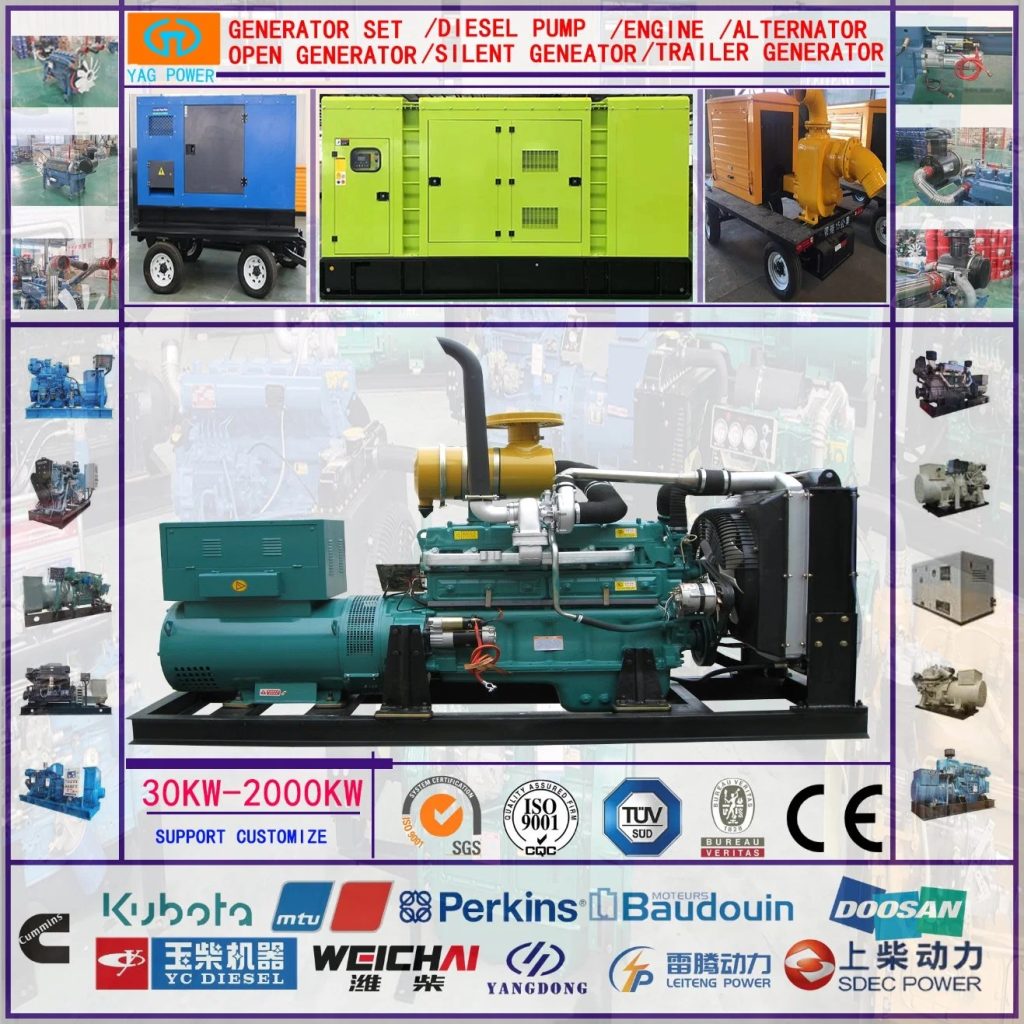Introduction

Diesel generators are essential power sources in many industries and applications where a reliable and continuous power supply is crucial. However, in environments with corrosive atmospheres, the performance and lifespan of diesel generators can be significantly affected if proper precautions are not taken. This article aims to provide a comprehensive guide on diesel generators specifically designed for corrosive atmospheres, exploring the challenges posed by such environments and the solutions available to ensure the reliable operation of these critical power systems.
Understanding Corrosive Atmospheres
Corrosive atmospheres are characterized by the presence of corrosive elements such as moisture, salt, acids, and other chemicals that can react with the components of diesel generators, leading to accelerated corrosion and degradation. These environments are commonly found in industries such as offshore oil and gas, chemical processing, marine applications, and coastal locations where exposure to saltwater is a constant threat.
Challenges Faced by Diesel Generators in Corrosive Atmospheres
Diesel generators operating in corrosive atmospheres face several challenges that can impact their performance and longevity:
1. Corrosion: The primary challenge is corrosion, which can affect various components of the generator, including the engine, alternator, fuel system, and electrical connections. Corrosion can lead to equipment failure, reduced efficiency, and increased maintenance costs.
2. Electrical Issues: Corrosion can also cause electrical issues such as short circuits, grounding problems, and insulation degradation, leading to malfunctions and potential safety hazards.
3. Cooling System Degradation: The cooling system of a diesel generator is vital for maintaining optimal operating temperatures. Corrosion in the cooling system can impair heat transfer efficiency, leading to overheating and reduced performance.
4. Air Intake System Contamination: Corrosive atmospheres can contaminate the air intake system of a diesel generator, affecting combustion efficiency and engine performance.
5. Structural Integrity: Corrosion can compromise the structural integrity of the generator enclosure, leading to leaks, rusting, and overall degradation of the system.
Solutions for Diesel Generators in Corrosive Atmospheres
To overcome the challenges posed by corrosive atmospheres, manufacturers offer specialized diesel generators that are designed and built to withstand the harsh conditions. Below are some key solutions implemented in diesel generators for corrosive environments:
1. Corrosion-Resistant Materials: Diesel generators for corrosive atmospheres are constructed using corrosion-resistant materials such as stainless steel, galvanized steel, and aluminum. These materials provide enhanced protection against rust and corrosion.
2. Protective Coatings: Components of the generator are coated with protective coatings such as epoxy, polyurethane, or ceramic coatings to create a barrier against corrosive elements.
3. Sealed Enclosures: Diesel generators designed for corrosive atmospheres feature sealed enclosures that prevent moisture and contaminants from entering the system, ensuring the internal components remain protected.
4. Stainless Steel Hardware: The use of stainless steel hardware for fasteners, hinges, and other components helps prevent corrosion and ensures the longevity of the generator in corrosive environments.
5. Enhanced Air Filtration: Specialized air filtration systems are incorporated into diesel generators to prevent the ingress of corrosive particles and contaminants into the engine, ensuring clean and efficient combustion.
6. Corrosion-Resistant Fuel Systems: Diesel generators for corrosive atmospheres are equipped with fuel systems that are resistant to corrosion, preventing fuel contamination and ensuring reliable operation.
7. Enhanced Cooling Systems: Cooling systems in diesel generators designed for corrosive environments are equipped with corrosion-resistant components and coatings to maintain efficient heat transfer and prevent overheating.
8. Regular Maintenance and Inspection: Proper maintenance and regular inspection are essential for diesel generators operating in corrosive atmospheres. Scheduled maintenance checks and corrosion monitoring help identify potential issues early and prevent costly failures.
Case Studies and Best Practices
Several industries rely on diesel generators in corrosive atmospheres to ensure uninterrupted power supply. Let's explore some case studies and best practices from these industries:
1. Offshore Oil and Gas Platforms: Offshore oil and gas platforms operate in highly corrosive environments due to exposure to saltwater and harsh weather conditions. Diesel generators installed on these platforms are designed with marine-grade materials, protective coatings, and comprehensive corrosion protection measures to withstand the challenging conditions.
diesel generator set : Implementing a rigorous maintenance schedule that includes regular inspections, cleaning, and corrosion monitoring can help extend the lifespan of diesel generators on offshore platforms.
2. Chemical Processing Plants: Chemical processing plants often have corrosive atmospheres due to the presence of acids, gases, and chemicals. Diesel generators used in these plants are equipped with specialized coatings, corrosion-resistant materials, and advanced filtration systems to ensure reliable performance.
Best Practice: Conducting thorough risk assessments to identify potential corrosion sources and implementing preventive measures such as protective coatings and corrosion inhibitors can help mitigate the impact of corrosive atmospheres on diesel generators in chemical processing plants.
3. Coastal Applications: Coastal locations are prone to saltwater exposure, which can accelerate corrosion in diesel generators. Generators installed in coastal applications are designed with saltwater-resistant materials, sealed enclosures, and robust ventilation systems to protect against corrosion.
Best Practice: Installing sacrificial anodes and cathodic protection systems can help reduce the impact of galvanic corrosion in diesel generators operating in coastal environments.
Conclusion
Diesel generators play a crucial role in providing backup power in various industries and applications, including those operating in corrosive atmospheres. Understanding the challenges posed by corrosive environments and implementing appropriate solutions are essential to ensure the reliable operation and longevity of diesel generators in such conditions. By choosing specialized generators designed for corrosive atmospheres, incorporating corrosion-resistant materials and coatings, and following best practices for maintenance and inspection, industries can mitigate the risks associated with corrosion and safeguard their power supply systems. Diesel generators for corrosive atmospheres offer a reliable and robust solution to meet the demanding power needs of industries operating in challenging environments.

0sem comentários ainda